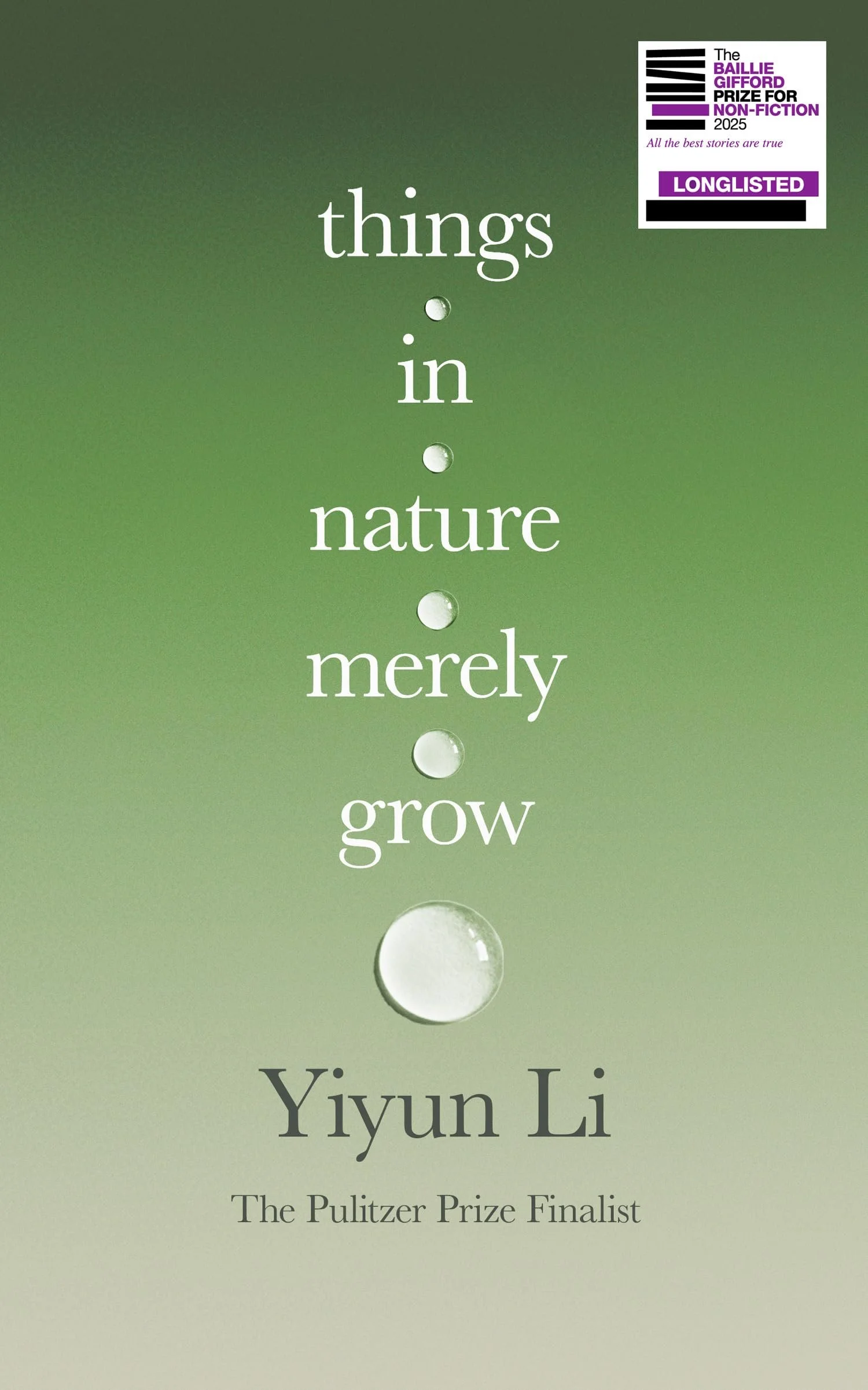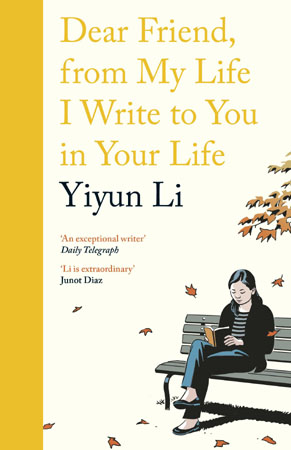It's a strange experience following an author's semi-autobiographical publications for years. Unexpected tragedies which occur in reality are honed into books with meaning which is both personal and universal. I've read and been extremely moved by Li's previous books “Dear Friend, from My Life I Write to You in Your Life” in which she alludes to her own suicide attempt and “Where Reasons End” in which she creates fictional conversations with her teenage son Vincent who committed suicide. It's difficult to imagine that there could be any experiences which are more heartbreaking than what Li already lived through. But last year her second son James also committed suicide. Li acknowledges in this new book about James that if this were fiction it would strain belief and that enduring such tragedy is unimaginable until it actually occurs. Nevertheless, this is her reality. In this book she doesn't so much ponder how or why James died, but the experience of still being a mother though both her children are deceased and persisting after such an agonising loss has occurred. The fact of what has happened must be faced and she records her process of “radical acceptance” because “If an abyss is where I shall be for the rest of my life, the abyss is my habitat. One should not waste energy fighting one's habitat.”
Reading about such a personal tragedy might feel too morbid and achingly difficult for many readers, but I'm glad to have read this book for its quiet wisdom, practical approach to dealing with bereavement and people's awkwardness around death. Li describes both invaluable support and callous reactions she's received from different people since being informed about James' suicide. Some people offer a valuable perspective to Li and there are small acts of kindness which assist in the practicalities of daily life. However, it staggers belief how some individuals feel compelled to make one person's tragedy more about themselves. Equally, since Li is a writer and public figure, commentary from the media (especially Chinese news outlets) has been insensitive and cruel in their assumptions and speculations. There's a satisfaction in reading how Li settles the score in this memoir and lays bare the worst side of how humanity can respond to such a tragedy. It's also surprising and horrifying how Li recounts the physical and mental abuse she received at an early age from her mother; this contrasts sharply with the understanding and respect she gave to her own sons. This book also offers a new way of understanding loss – not as a process of grieving, a notion which Li refutes because it suggests there will be an endpoint when the grief will end and normal life will resume: “What is grief but a word, a shortcut, a simplification of something much larger than that word?” There is no normality after such a monumental loss and if reality is to be accepted it must be faced in all its ruthless complexity.
Death wasn't discussed much when I was growing up (I think this is common for many Americans) so whenever I experience the loss of a loved one I feel somewhat unequipped to know how to respond. I'm stupefied and uncomfortable with death, as if the fact of it should be simply acknowledged and then we should all swiftly move on. So I'm grateful for the rational way Li details and discusses surviving through something which feels so irrational and overwhelming. It's also a beautiful testament to the unique qualities of both her sons. She explains that the form her book “Where Reasons End” took was particular to Vincent and the form this book takes is unique for James: “A book is a placeholder, no more, no less. This book for James – what does it hold? All the words that have come to me: many of them fall short; some are kept because they are needed to hold a place for James.” I feel grateful to have got to know a bit about this intelligent young man through Li's recollections. More than that I feel I have a better point of view about the process of bereavement and facing such unimaginable loss – because it's sadly inevitable we will all lose loved ones at some point. As Li states, “There is no real salvation from one's own life; books, however, offer the approximation of it.”











